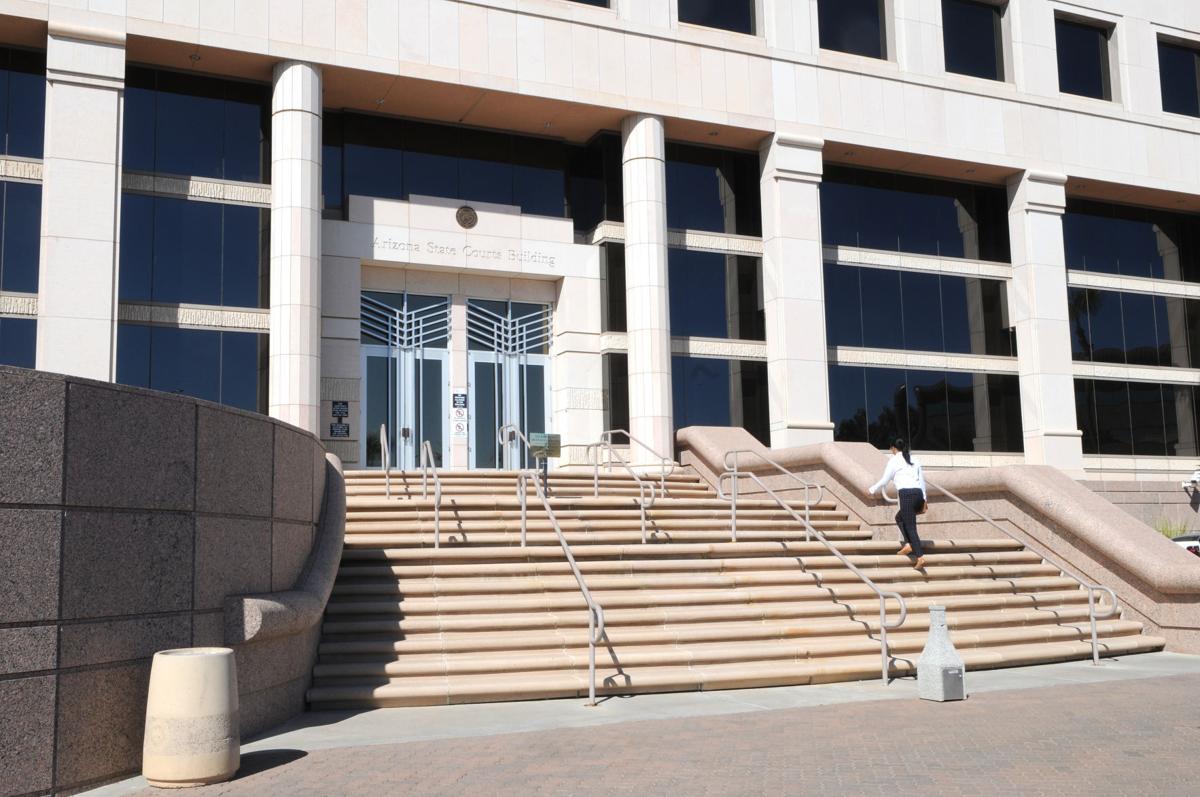PHOENIX — Republican Gov. Doug Ducey will have to choose among seven nominees to fill a vacancy on the Arizona Supreme Court.
It won’t boost his influence on the high court as he is naming a replacement for one of the justices he previously appointed.
The Commission on Appellate Court Appointments nominated the seven after interviewing 11 applicants for the slot vacated by Andrew Gould. He quit last month to run as a Republican for state attorney general.
Ducey is constitutionally required to choose from the list. It includes:
Cynthia J. Bailey, a judge since last year on the state Court of Appeals, a Republican;
David J. Euchner, a Pima County public defender and a registered Libertarian;
Kathryn H. King, a Republican in private law practice;
Jennifer M. Perkins, a Republican who has been on the Court of Appeals since 2017;
Adele G. Ponce, a judge at Maricopa County Superior Court and a Republican;
Patricia A. Starr, a Maricopa County Superior Court judge who was a Democrat until 1999 when she became a political independent;
And David D. Weinzweig, a Court of Appeals judge since 2018 who said he started out as a Republican, became a Democrat in 2004 and has been politically independent since 2014.
Ducey now has 60 days to make his choice.
‘Merit’ process
The issue of political representation is significant as the commission, in sending nominations to the governor, is constitutionally limited to no more than 60% from any one party. In including the two independents and one Libertarian, panel members came as close as they could, at 57%.
Before 1974, all justices and judges were chosen by direct election, like politicians.
A constitutional amendment approved that year set up a “merit selection” process whereby applicants for the Supreme Court, Court of Appeals and Pima and Maricopa counties’ courts are reviewed by special screening panels. Those panels must send the governor at least three names from which he must choose. Since that time the system has been expanded to include Pinal and Coconino counties.
Judges stand for election on a retain-or-reject basis. If anyone is turned out of office, something that has rarely happened, the process of filling that vacancy starts over again.
Ducey’s court
While whomever the governor picks will replace a Ducey nominee, his control over the high court was cemented in 2016 when the Republican-controlled Legislature agreed to his request to expand the court from five members to seven. That came despite arguments by everyone on the court at that time, from all political sides, that the workload did not necessitate more justices.
As a result, Ducey has been able to name five justices to the court: Gould, Clint Bolick, John Lopez, James Beene and Bill Montgomery.
In signing the 2016 law, the governor rebuffed questions of whether he was “packing’’ the court. “That’s just wrong,’’ he said.
Ducey pointed out that this is different than the federal system, where a president picks whoever he or she wants, subject only to Senate confirmation. Instead, he is required to make his selection from the nominees of the Commission on Appellate Court Appointments.
What Ducey did not say, though, is that the public members of that commission — two-thirds of the panel — are gubernatorial appointees, with the balance named by the State Bar of Arizona.





